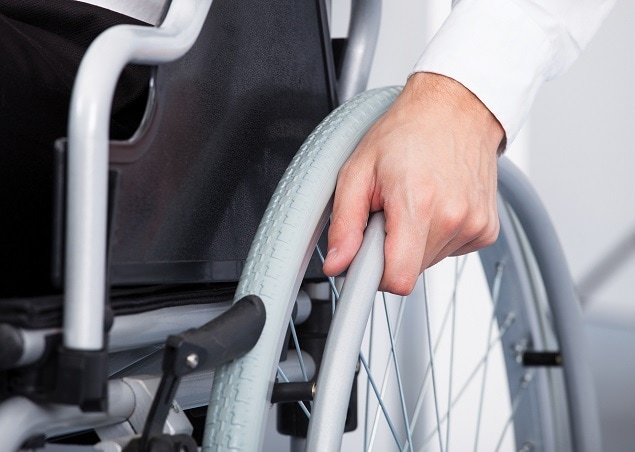
Many people who are self represented in pursuing a TPD claim find the process frustrating and slow. Quite often an insurer will refuse to continue assessing a claim until some records or a report from a doctor or other source is received. Depending on the timing of the request for these reports you may have rights to insist that the assessment process continue and a decision be made promptly.
Options available to you
The court is available to hear and determine applications by people who are not satisfied with the progress of their claim and orders can be sought that a decision be made within a certain period of time. The applications are relatively inexpensive and can mean the difference between a quick assessment process or languishing at the mercy of an insurer.
Applications are commonly heard within a matter of days or weeks of being prepared and filed with the court. The District Court can assist with matters of interpretation of the insurance policy in question. If there is a dispute as to which part of a TPD definition applies or at what date the assessment should take place then the court can be asked to determine that issue.
If you are successful in your application then commonly the court will order that the super fund and/or insurer pay part of your costs of the application.
Example of a successful case
A recent example of where this approach was successful involved an income protection provider who required an undertaking to be signed by the Claimant before they would continue to assess the claim. The undertaking required the Claimant to refund any income protection payments he received in certain circumstances which were not contemplated by the policy of insurance and therefore the Claimant did not have to agree to that refund.
The Claimant commenced an application in the District Court at Brisbane seeking an order that the insurer continue the assessment without the requested undertaking. Before the court was able to hear the matter the insurer conceded that the undertaking was not required and agreed to continue assessing the claim and then accepted the claim within a matter of a couple of weeks after the application. The insurer agreed to pay an amount towards the Claimants costs of the application.
Quite often issues around when a disability, sickness or illness occurred or when a claim should be assessed at arise in TPD claims. These are issues which a court can be asked to decide based on interpretation of the insurance policy in question.
Evidence you may need to provide
Delay in receiving medical reports, records or other evidence is also a common feature in TPD claims. Commonly the insurer will request records as a matter of course without considering the particular claim before it. Those records may or may not be relevant to the issues in that claim. If the records are unlikely to assist the assessment process than any delay in waiting for the records is unreasonable. It would be open for a Claimant to apply to the court for orders that the assessment process continued despite the reports or records not being available.
Insurer’s will sometimes require an independent medical examination to occur. It is sometimes difficult for a Claimant to determine on their own whether the request for an IME is reasonable or not. As a minimum the insurer should explain to the Claimant exactly why the examination is required and inform the Claimant before the examination occurs what issues the doctor is being asked to consider. A copy of the insurer’s letter to the doctor including any documents being brief which have not been provided previously to the Claimant should be available before the examination occurs.
The particular specialty of the doctor in question is important. The doctor should be qualified to consider the particular injuries or illnesses causing the incapacity for work. Commonly the default position of an insurer will be to use an occupational physician. An occupational physician is not qualified to clinically examine a Claimant and form an opinion as to diagnosis in an area of specialty outside of their field of expertise. If an occupational physician is being asked to diagnose a condition then any opinion should be treated with caution compared to that of a specialist within the field of medicine relevant to the condition in question. Often an occupational physician will be assisted by other special opinion which will enable them too.
An independent medical examiner is independent and should engage with the Claimant before, during and after any assessment. If an examiner refuses to speak with a Claimant or their advisors before or after an examination then questions can be asked as to their true independence.
The Claimant should be able to contribute to any brief to the expert to ensure that all relevant material is provided to the expert and appropriate questions are asked of the expert.
Choose your specialist
In order to ensure independence an insurer should provide a panel of at least three specialist for a Claimant to choose from prior to making any appointment for the examination to occur. Repetitive and unnecessary examination can be avoided. If specialist opinion is required and previous specialists have been used then it may not be appropriate to engage a further specialist as opposed to returning to the previous specialist involved in the claim.
The reasonableness of a request for an IME will depend on the facts of each particular claim however a Claimant should be aware of their rights in relation to IMEs before agreeing to any requests by an insurer.
Super Claims Australia can help with all your TPD claims
At Super Claims Australia we have dedicated solicitors who can help you assess your claim to make sure all the right paperwork and records are submitted as expected by the insurer and that your matter is not delayed. If your claim has been rejected, you may also be able to challenge or dispute this decision. Give us a call on 13 43 63 for an obligation free assessment of your situation.
Contact Super Claims Australia
Should you have any queries whatsoever or wish to discuss your superannuation or life insurance claim please do not hesitate to contact us on 13 43 63.


